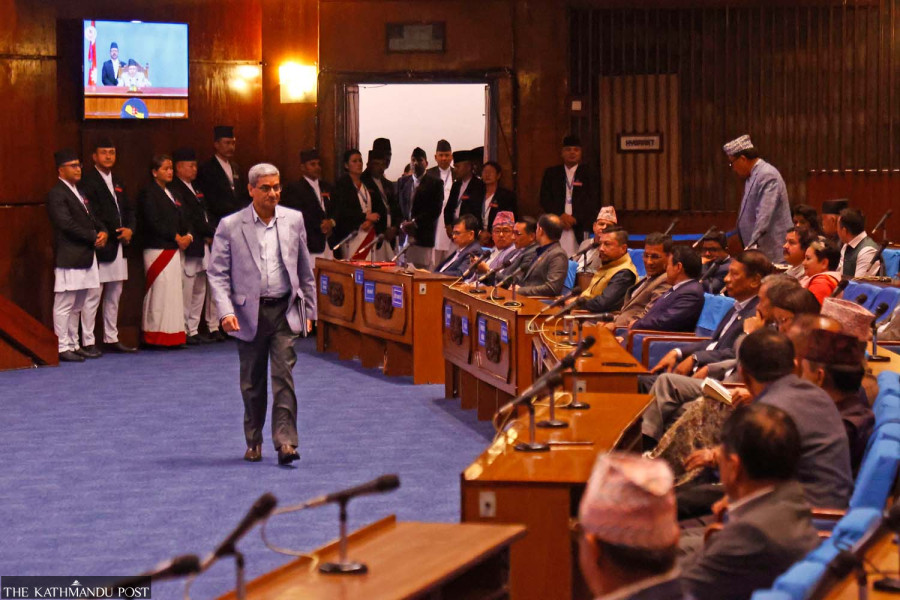Politics
Three major parties reach two-point agreement to end Parliament deadlock
Agreement includes formation of mechanism to probe visit visa issue; Rastriya Swatantra Party objects to the deal.
Post Report
The ruling parties—CPN-UML and Nepali Congress—and the main opposition the CPN (Maoist Centre) have reached a two-point agreement to end the obstruction in the House of Representatives over the visit visa controversy.
Maoist Centre Deputy General Secretary Barshaman Pun said the agreement includes forming an appropriate mechanism to study and investigate the visa scandal, paving the way for the resumption of House proceedings.
Congress Chief Whip Shyam Kumar Ghimire, UML Chief Whip Mahesh Bartaula, and Maoist Chief Whip Hit Raj Pandey have signed the agreement.
Despite the agreement among the big three parties, the Rastriya Swatantra Party (RSP), the fourth-largest in the lower house, has objected to the move. The House has remained stalled since May 27 due to the controversy.
Friday’s meeting of the lower house, initially scheduled for 1pm, was postponed to 3:15pm.
After the Commission for the Investigation of Abuse of Authority (CIAA) unearthed the visit visa scam at the Tribhuvan International Airport immigration office and possible links between the immigration officials and senior officials at the Home Ministry, opposition parties have upped the ante against Home Minister Ramesh Lekhak over the past two weeks. The opposition continuously obstructed Parliament, demanding an investigation into Lekhak, who is allegedly linked to the visa scam.
The two-point agreement reads:
1. The Commission for the Investigation of Abuse of Authority (CIAA) is currently investigating matters related to visit visas and immigration. The commission will conclude its investigation, and the Nepal government will provide all necessary support upon request.
2. To resolve the longstanding issues concerning immigration and visit visas, the Nepal government will undertake necessary studies and investigations and initiate concrete efforts for policy, legal and structural reforms.




 9.6°C Kathmandu
9.6°C Kathmandu













